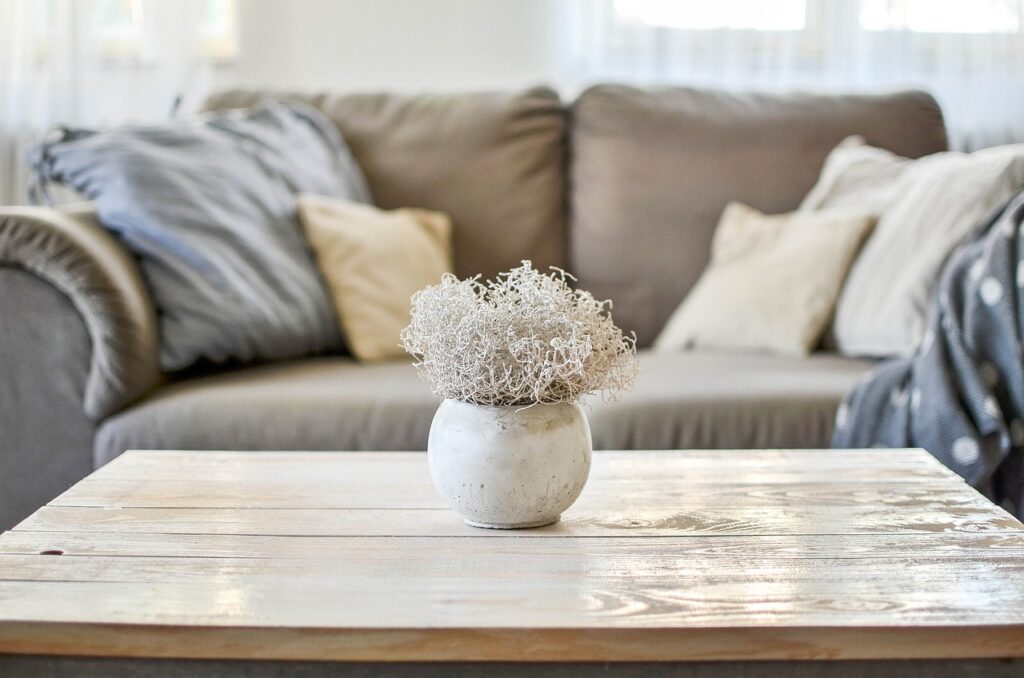Imagine stepping into the kitchen for your morning cup of coffee. You haven’t awoken all the way, and your jolt of caffeine will do the trick nicely. You reach into the dishwasher to grab a cup, but you discover that you forgot to turn it on last night, so there are no clean coffee mugs. You also forgot to prep the coffeemaker, so the coffee is not ready to be turned on. Crumbs litter the floor between your room and the kitchen because you collapsed onto the couch without sweeping, and now your foot feels all icky. Does this feel peaceful? No. Are you ready to take on the day? Absolutely not. Could some of this be prevented? Yes.
Let’s try again.
Imagine stepping into the kitchen for your morning cup of coffee after washing your face. The sleep monkey still hangs on your back as you reach into the dishwasher for a clean mug. The dishes are clean because you ran the load last night. You simply turn on the coffeemaker and reach for the creamer in the fridge to prep your cup while you wait. You peek out the window at the rising sun and enjoy the slow burst of heat on your toes from the cabinet vents. The cool but clean floor offers an interesting contrast, but peace and hope for the new day blossom in your chest. Peaceful? Calming? Possible? Yes, yes, a thousand times, yes!
The difference can be summarized in a word: reset. The kitchen in the second scenario was reset the night before, and the benefits were paid in full in the morning. Let’s delve into what that means.
To reset the room means to return the room to a ready state, as in ready to be used. In a kitchen (the most important room for this), this (at least, nightly) resetting allows for the next morning/day to go infinitely more smoothly. After cooking and eating dinner in the evenings, one of the more annoying moments is when I look at the counters and the floor to discover the remnants of our meal. Yes, it was delicious, but now dirty dishes cover the counters and the table. Crumbs and spills abound, and the sink is full, too. I don’t feel like dealing with this mess, especially after almost an hour of cooking. And yet, if I don’t clean it now, it will be a hundred times harder tomorrow. To reset this room, I must clean the table, load/run the dishwasher, sweep the floor, wipe up the spills, wipe down the counters, prep the coffeemaker, and make sure the room is ready to be used the next time. Once it is reset, the kitchen is full of possibilities and my to-do list is empty of another reminder task, nagging in the back of my head while I just “take a minute.” The peace and calming aspect of a clean room makes me love my home just a little more because I know I’ve done my job, and if something comes up (like someone in the house wants a snack), they can simply go into the kitchen and find something.
Does this resetting need to happen all over the house? Again, a thousand times, yes. While I would argue the kitchen should get priority over your laundry room in the resetting order, I also would say the whole house should have a daily reset, as well. That serene silence after the house’s reset permeates throughout the house, allowing for actual rest because the day has drawn to a close and so have the daily tasks.
We’ve already addressed the kitchen, so let’s discuss the other rooms of the house. Ideally, the resetting includes a five-minute tidy (putting items back in their homes for literally five minutes), a moment to address major spills/messes on the floors, a neatening of items on the flat surfaces, and a trash check to see if the trash needs to be emptied/replaced with a new trash bag. Applying this small checklist to each room each night, focusing on the most used rooms first, would build in a level of housekeeping/closure to the day and allow for its occupants to enjoy the benefits of a room/house that is ready to be used every morning.
Of course, you make the rules of your own home, but for my house, these are the things I try to make a priority most days. Life happens, and it is good to allow grace in the spaces where necessary. Eventually, with enough repetition, it can become a habit, so much so, that the reset mentality shifts to other parts of the day, and now you choose to reset at other points of the day like after you use the room or at natural breaks like naptime.
Resetting the room/house can also involve the family. In my house, at the end of the day, we have the children reset their living space, which includes the large living room that they play/learn in, their bedrooms, and their bathroom after they get their baths. The compound lesson teaches how to care for their own space while helping me delegate some of the household tasks. Again, the resetting generally takes about 15-20 minutes, but it is now a habit. After they finish, it’s time to play on their PlayStation, coupling the idea of work/play balance. The teamwork, diligence, and stewardship established in the routine responsibility set them up for success later in multiple ways.
Although I am far from the Proverbs 31 woman, I try to emulate her. Proverbs 31: 27 says, “She watches over the ways of her household, and does not eat the bread of idleness.” By focusing on a nightly reset, I watch how my home feels, and I pay attention to the daily atmosphere of my home when it is time to rest. Resetting the home is a small but meaningful avenue to remain diligent in my home keeping.

